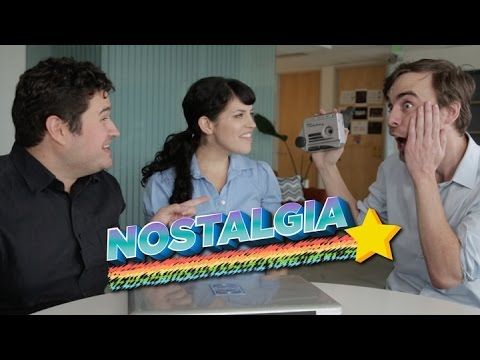In an era where digital content creators wield significant influence, the lines between impartial review, promotion, and potential legal transgression can become surprisingly blurred. For “Once Were Nerd,” an Italian YouTuber celebrated for his deep dives into retro gaming handhelds, this distinction has become the core of a serious legal challenge.
The Premise: A Passion for Portable Retro Gaming
Once Were Nerd built his channel on a foundation of genuine enthusiasm for handheld devices designed to emulate classic video games. These devices, often manufactured by companies like Anbernic and GoRetroid, appeal to a vast audience of nostalgic gamers eager to revisit their childhood favorites. His content typically features detailed examinations of these systems, discussing their build quality, performance, and the user experience.
The inherent appeal, and indeed the central controversy, lies in the fact that many of these third-party handhelds often ship pre-loaded with an extensive library of unauthorized ROMs – digital copies of copyrighted games originally published by giants like Sony and Nintendo. For the average consumer, this `plug-and-play` convenience is a significant draw; for intellectual property holders, it represents a clear violation.
The Knock on the Door: Italian Authorities Step In
The situation escalated when Once Were Nerd revealed on his channel that he was visited by the Guardia di Finanza, Italy`s financial crimes and customs police. Armed with a search warrant, the agency confiscated his personal phone and, perhaps more significantly for his livelihood, over 30 handheld gaming systems. This was not a casual inquiry; it was a full-fledged investigation into potential breaches of Italian copyright law.
The core of the authorities` concern centers on a specific interpretation of the law, which deems it illegal to promote copyrighted material via social media. The legal argument, in essence, is that by reviewing devices that contain or facilitate access to copyrighted games without proper licensing, the YouTuber is inadvertently, or perhaps even directly, promoting illegal content.
The Defense: Reviewer vs. Promoter
Once Were Nerd vehemently disputes the accusation of promotion. His defense is straightforward: his videos are impartial reviews, not sponsored endorsements. He asserts that he receives no compensation from the handheld manufacturers for his content and that his objective is simply to inform his audience about available products in the market, good or bad.
This raises a fascinating and critical question for the entire content creation ecosystem: At what point does an objective review of a product containing illicit elements transform into the promotion of those illicit elements? Is a car reviewer promoting reckless driving if they test a car capable of excessive speed? The analogy is not perfect, but it highlights the delicate balance creators must strike when interacting with products that exist in a legal grey area.
Potential Ramifications: A Costly Clash
Should Once Were Nerd be officially charged and found guilty, the consequences are severe. He could face significant fines, with reports referencing sums up to 30 million Italian Lira (an archaic figure from Italy`s pre-Euro currency, which nonetheless signifies a substantial penalty in its historical context). More daunting still is the prospect of up to three years of jail time and the permanent shutdown of all his online channels. Such an outcome would not only devastate his career but also send a chilling message to other content creators operating within similar niches.
A Broader Discussion: The Digital Frontier of Copyright Law
This case is more than just about one YouTuber in Italy; it`s a microcosm of the ongoing struggle to apply traditional copyright laws to the rapidly evolving digital landscape. Retro gaming, particularly, often thrives in a somewhat ambiguous legal space:
- Emulation vs. Piracy: Emulators themselves are generally legal, as they are merely software that replicates hardware. However, the distribution and use of copyrighted game ROMs without licenses are not.
- Manufacturer Responsibility: If the handheld manufacturers are pre-loading these devices with ROMs, why isn`t the primary focus on them? The legal system often targets the most accessible or visible nodes in a distribution chain.
- Content Creator Liability: How much responsibility falls on a reviewer for what a product does, rather than what the reviewer says about it?
- Preservation vs. Profit: Many argue that emulation helps preserve gaming history that would otherwise be lost. Copyright holders, understandably, want to protect their intellectual property and potential revenue. Finding a balance remains an elusive goal.
As the investigation continues, the retro gaming community and content creators worldwide will be watching closely. The outcome of Once Were Nerd`s case could set a significant precedent, redefining the boundaries of what is permissible when reviewing technology that blurs the lines between innovation, nostalgia, and intellectual property rights. It`s a sobering reminder that even a passion project, when it touches upon complex legal frameworks, can swiftly transition from a hobby into a harrowing legal battle.







